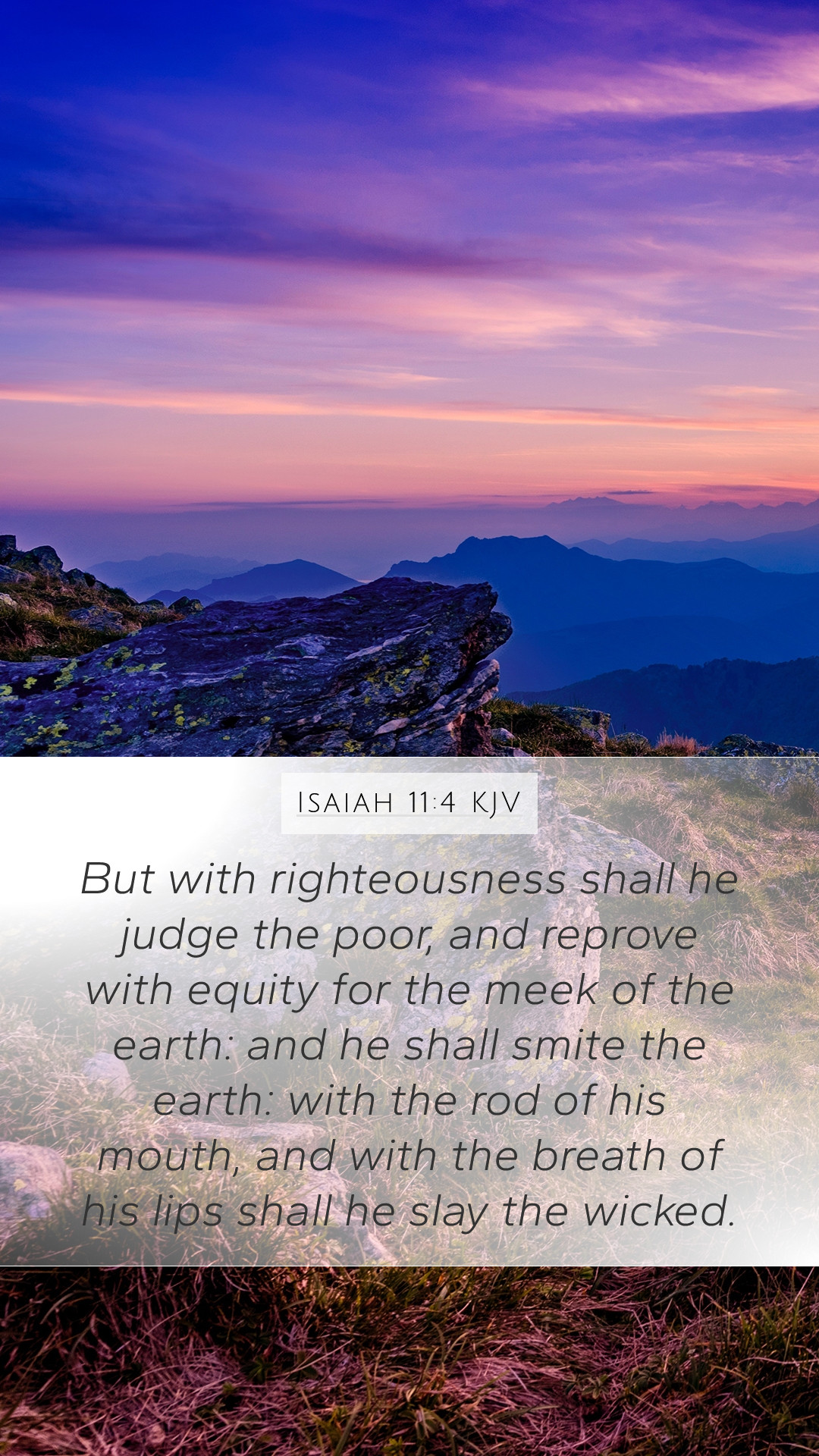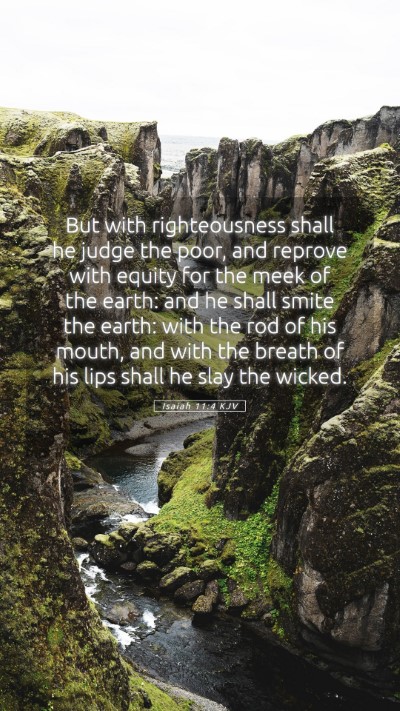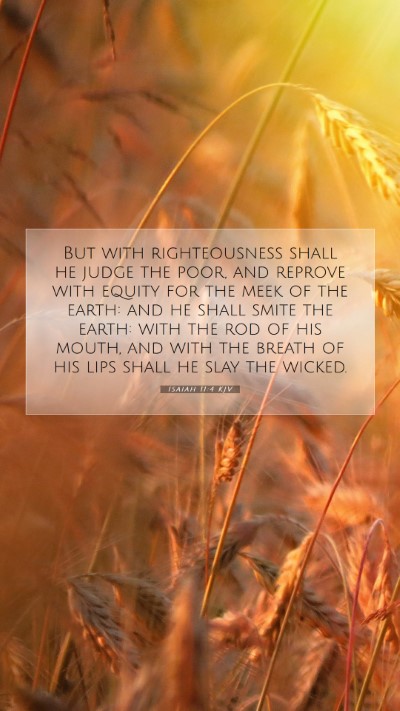Isaiah 11:4 is a profound verse that provides insight into the nature of divine justice and righteousness. This verse states:
"But with righteousness shall he judge the poor, and reprove with equity for the meek of the earth: and he shall smite the earth with the rod of his mouth, and with the breath of his lips shall he slay the wicked."
This passage holds significant importance in both the context of Isaiah and Christian theological interpretation. Below is a detailed exploration of its meaning by combining insights from public domain commentaries such as those by Matthew Henry, Albert Barnes, and Adam Clarke.
Overview and Context of Isaiah 11:4
Isaiah chapter 11 is often viewed as a messianic prophecy detailing the characteristics of the coming Messiah, who Christians identify as Jesus Christ. This passage emphasizes the attributes of justice and righteousness that define His reign. The context discusses the hope of an age of peace and restoration, particularly for those marginalized by society.
Key Insights and Commentary
-
Justice for the Poor:
Matthew Henry emphasizes that the Messiah will administer justice in a way that is fair and impartial. The term "poor" highlights those who are oppressed or disadvantaged, indicating that divine judgment will prioritize the needs of the marginalized.
-
Righteous Judgment:
Albert Barnes points out that the righteousness referred to here is not merely a legalistic adherence to rules but a profound moral integrity that reflects God’s character. The Messiah will judge the poor not only on their actions but also considering their circumstances, ensuring that justice prevails in the most equitable manner.
-
The Role of Equity:
Adam Clarke elaborates on the word "equity," indicating that the Messiah's judgments will reflect total fairness—pleasing neither the haughty nor the oppressor but serving the humble and lowly. This underscores the loving and just nature of God’s rule.
-
Divine Authority:
The "rod of his mouth" signifies the power of the Messiah's words. This conveys the idea that His proclamation of truth will lead to the ultimate defeat of wickedness. As Matthew Henry indicates, this portrays the authority with which the Messiah will confront evil.
-
Spiritual Implication:
The mention of "the breath of his lips" in slaying the wicked signifies the transformative power of God’s word. Albert Barnes notes that this is reminiscent of the creative power that brought the world into existence—demonstrating that the Messiah's rulership will be characterized by divine decree.
-
Final Judgment:
In a broader sense, Isaiah 11:4 foreshadows the final judgment where righteousness will ultimately triumph. Adam Clarke connects this to the prophetic themes throughout the Book of Isaiah, signaling a definitive shift where God's justice prevails. The text calls believers to trust in the assured victory of righteousness over wickedness.
Application of Isaiah 11:4 in Daily Life
Understanding Scripture such as Isaiah 11:4 invites us to reflect on the implications of living under the authority of a just and righteous King. Here are some applications:
-
Promoting Justice:
As followers of Christ, believers are called to advocate for justice and equity in their communities, aligning their actions with the Messianic expectation of caring for the poor and oppressed.
-
Trusting in God’s Authority:
In times of turmoil, this passage serves as a reminder to trust in God's ultimate authority and justice, encouraging believers to remain faithful in their commitment to righteousness.
-
Living with Integrity:
Drawing from the characteristics of the Messiah, believers are encouraged to cultivate personal integrity and righteousness in their lives, reflecting God's nature in their interactions.
Conclusion
Isaiah 11:4 encapsulates the hope of divine justice delivered by the Messiah, affirming that God's righteous rule will be characterized by compassion and fairness, particularly for the marginalized. The insights from traditional commentaries enrich our Bible verse understanding and provide a robust foundation for Bible study insights.
Related Bible Cross References
- Psalm 72:2: “He shall judge thy people with righteousness, and thy poor with judgment.”
- Isaiah 9:7: “Of the increase of his government and peace there shall be no end... upon the throne of David, and upon his kingdom.”
- Micah 6:8: “He hath showed thee, O man, what is good; and what doth the Lord require of thee, but to do justly, and to love mercy, and to walk humbly with thy God?”


